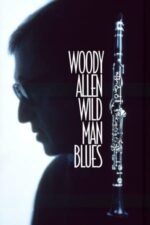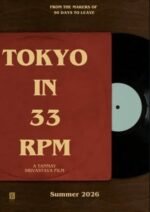Beyond the Notes: Exploring Jazz on Film – More Than Just Music
Hey everyone! So, I was thinking about jazz the other day - you know, that feeling it gives you? That smoky atmosphere, the improvisation, the sheer soul of it all. And naturally, my mind drifted to film. Because while experiencing live jazz is incredible (and something I highly recommend!), cinema has found some truly fascinating ways to capture and explore its essence. It’s more than just a soundtrack; it's about reflecting culture, identity, and even the human condition.
We often think of jazz as purely musical, but film reveals how deeply intertwined it is with history and emotion. Take They Shot the Piano Player, for example. This isn't just a documentary about Francisco Tenório Júnior’s disappearance; it's a powerful exploration of artistic freedom under oppressive regimes. The way Jeff Harris’ investigation weaves through Brazil and Argentina, punctuated by those incredible samba-jazz rhythms, really underscores how music can be both a source of joy and a target for censorship. It highlights the bravery of artists who dared to express themselves in turbulent times – something that resonates even today.
Then you have films like Tokyo In 33 RPM, which takes a completely different approach. Instead of focusing on a narrative, it immerses you in the vibrant jazz scene of Tokyo. The film isn’t about a plot; it's about feeling the pulse of a city through its music and the people who inhabit those smoky clubs. It’s a beautiful reminder that jazz isn't confined to one culture or geography – it evolves and adapts, creating something unique wherever it takes root.
And speaking of unexpected places, The Wurst Has a Master Plan is just… well, it’s wonderfully bizarre! The use of Pharaoh Sanders’ “The Creator has a Master Plan” as the soundtrack for sausages cavorting with camels? It's pure cinematic poetry. While seemingly absurd, it taps into that improvisational spirit inherent in jazz – embracing the unexpected and finding beauty in chaos. It reminds us that artistic expression can take any form.
Even something as seemingly simple as All You Can Eat, a short film about a sushi date, uses music (and the shared experience of food) to create an intimate connection between two people. It’s a subtle reminder that jazz's ability to evoke emotion isn't limited to grand performances; it can be found in the quiet moments of everyday life.
Ultimately, films exploring jazz aren’t just about showcasing incredible music (though they certainly do that!). They offer us glimpses into different cultures, historical periods, and most importantly, the human heart. So next time you’re looking for something a little different, I encourage you to dive in – there's a whole world of cinematic exploration waiting to be discovered beyond the notes themselves!
































